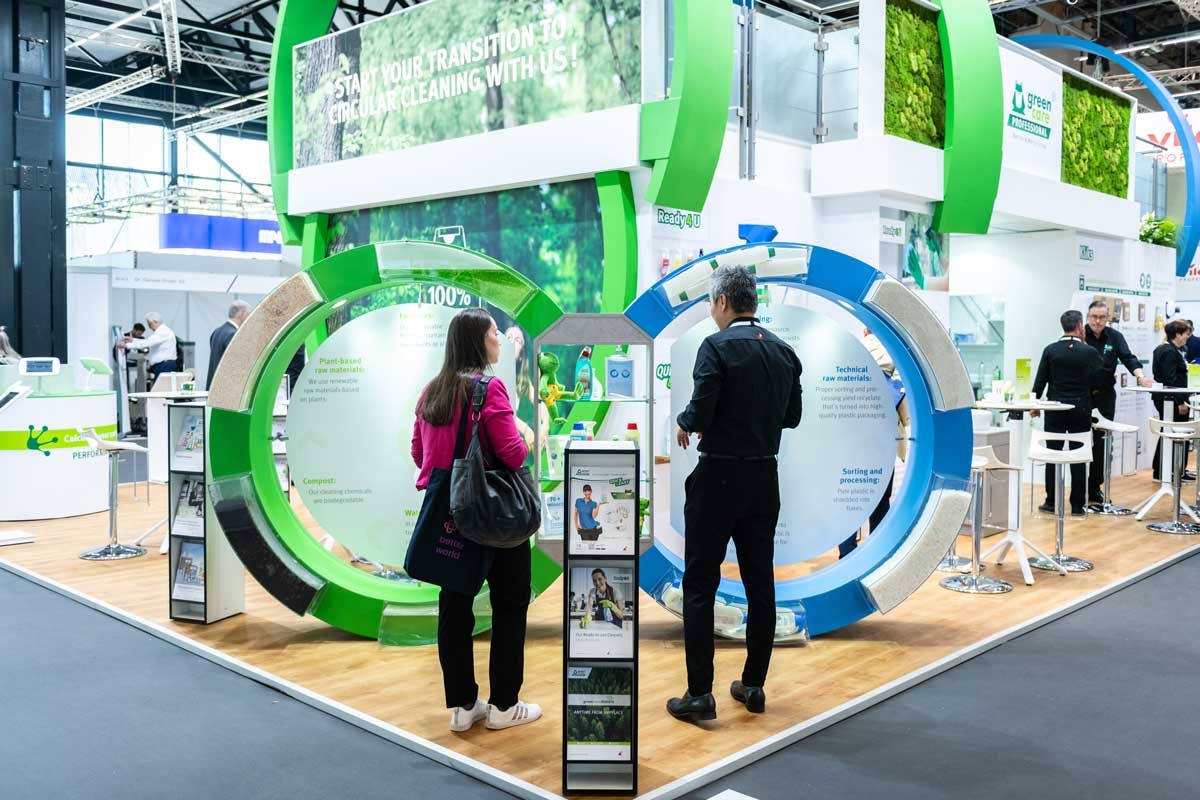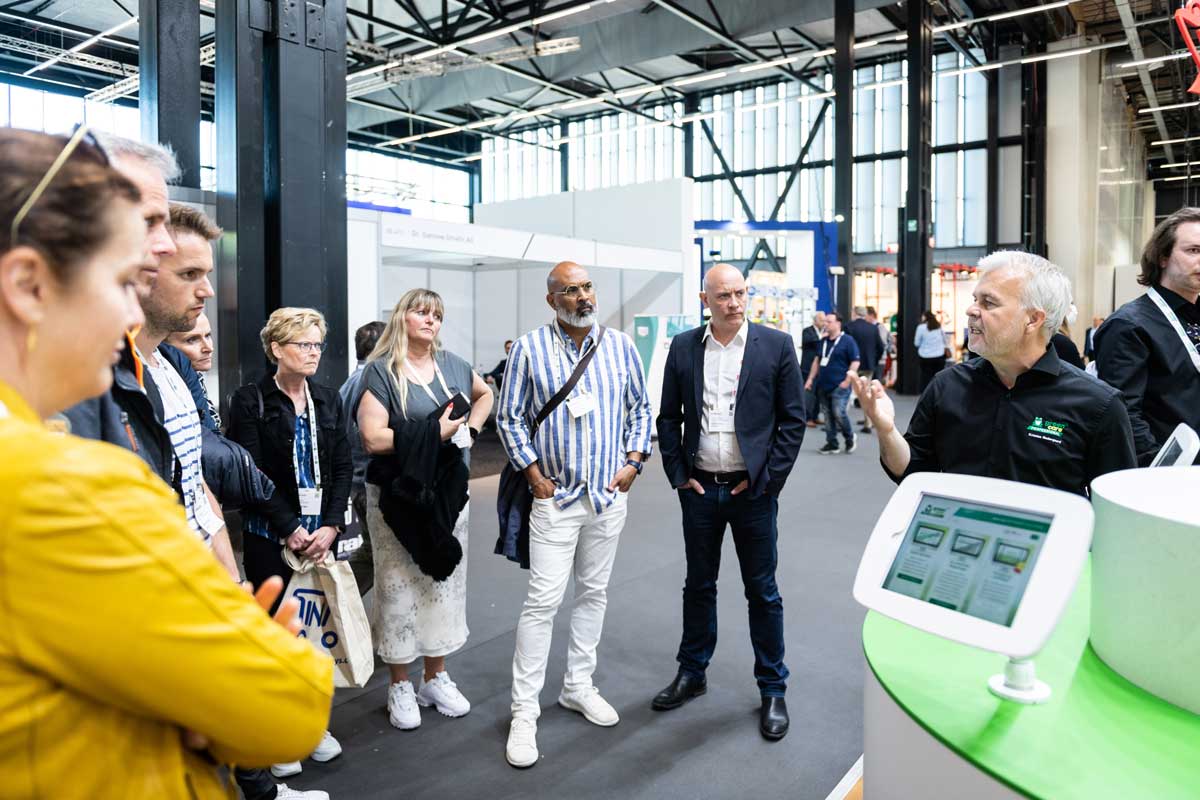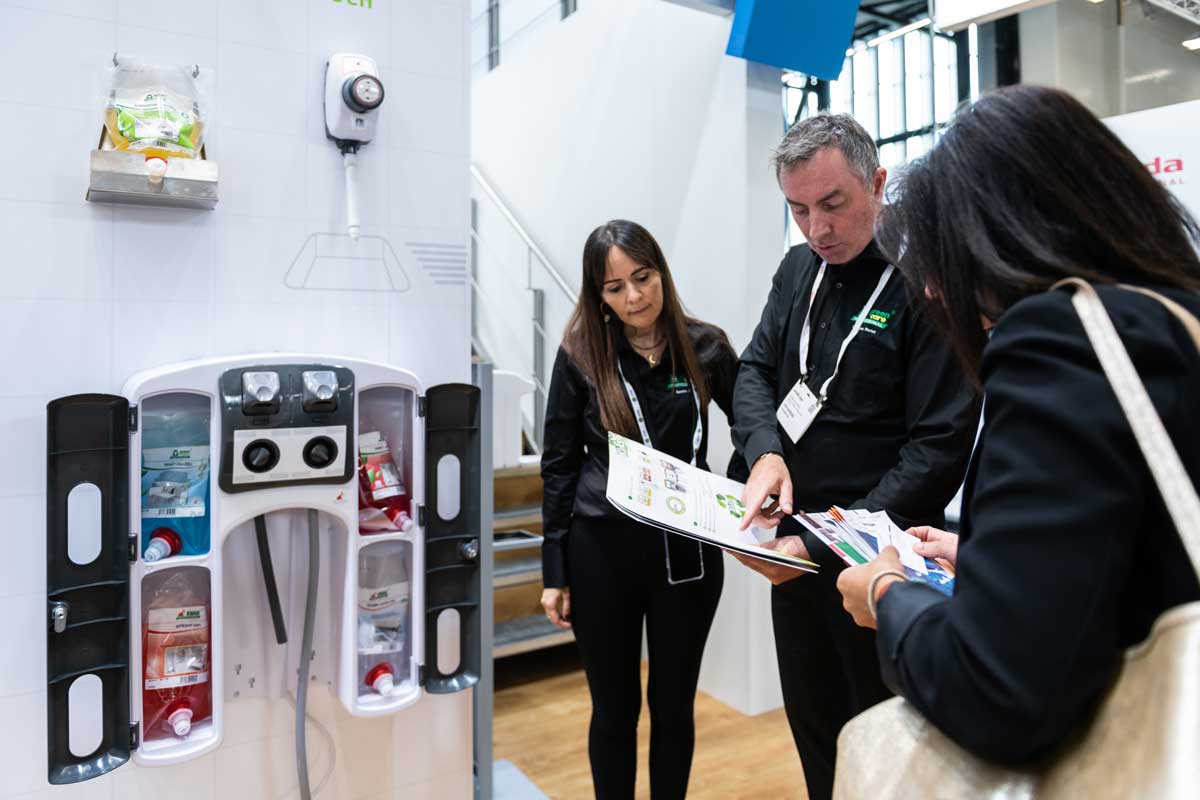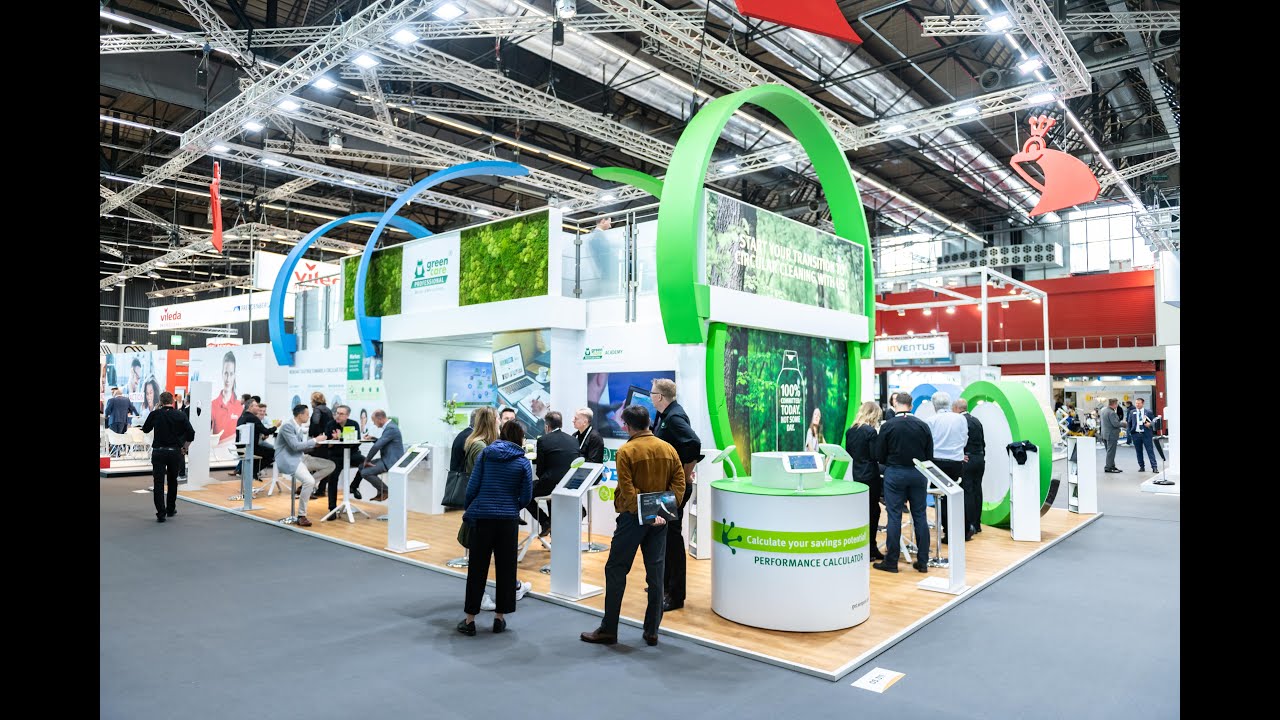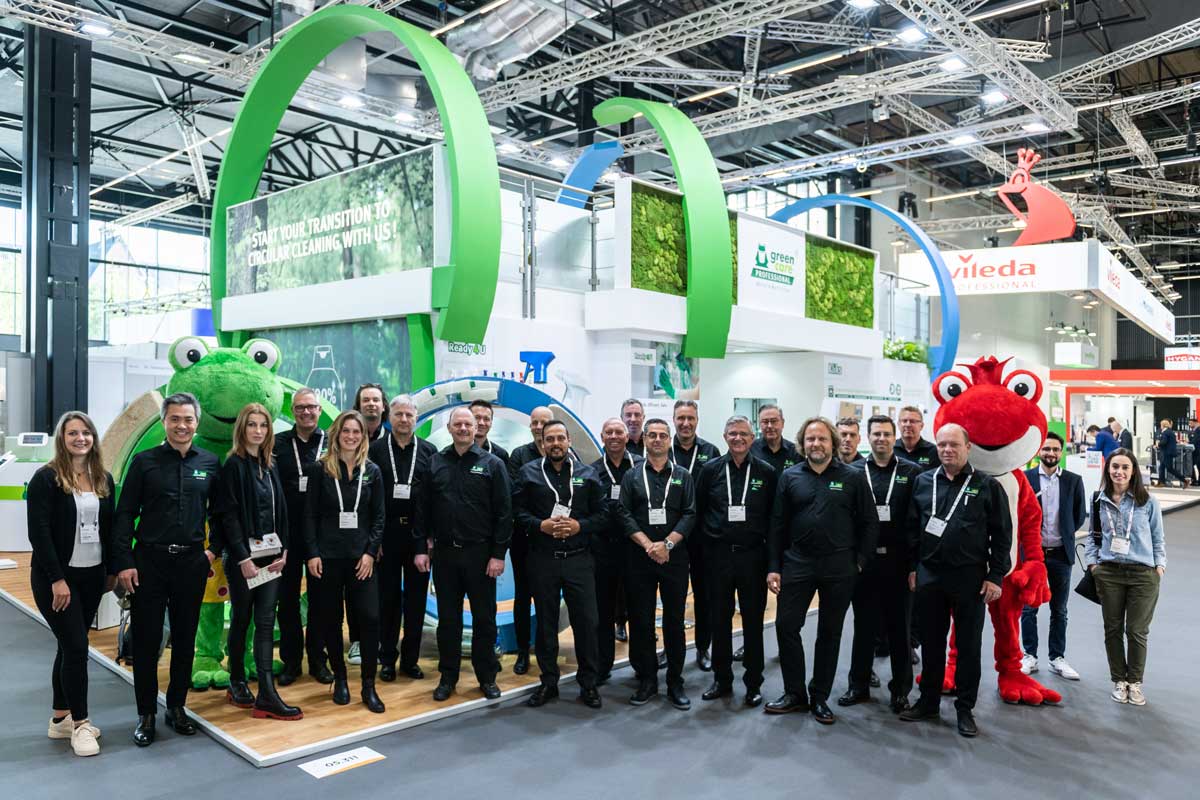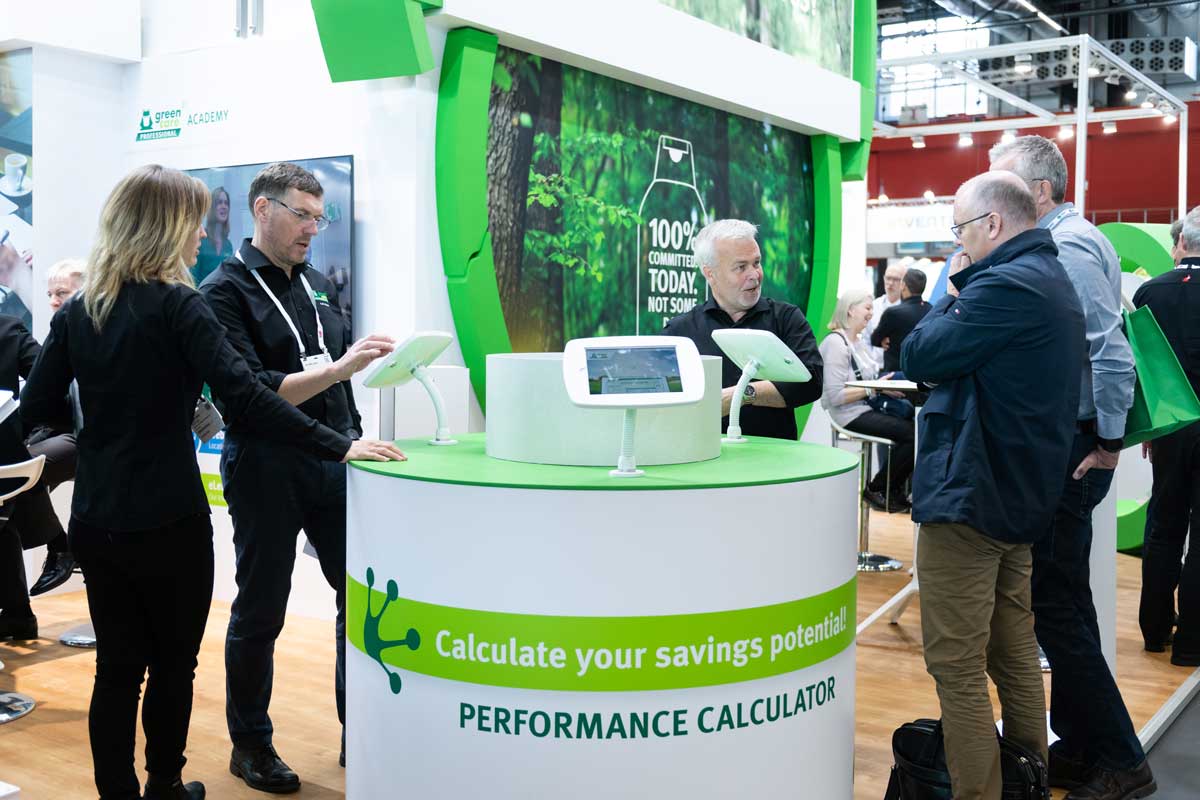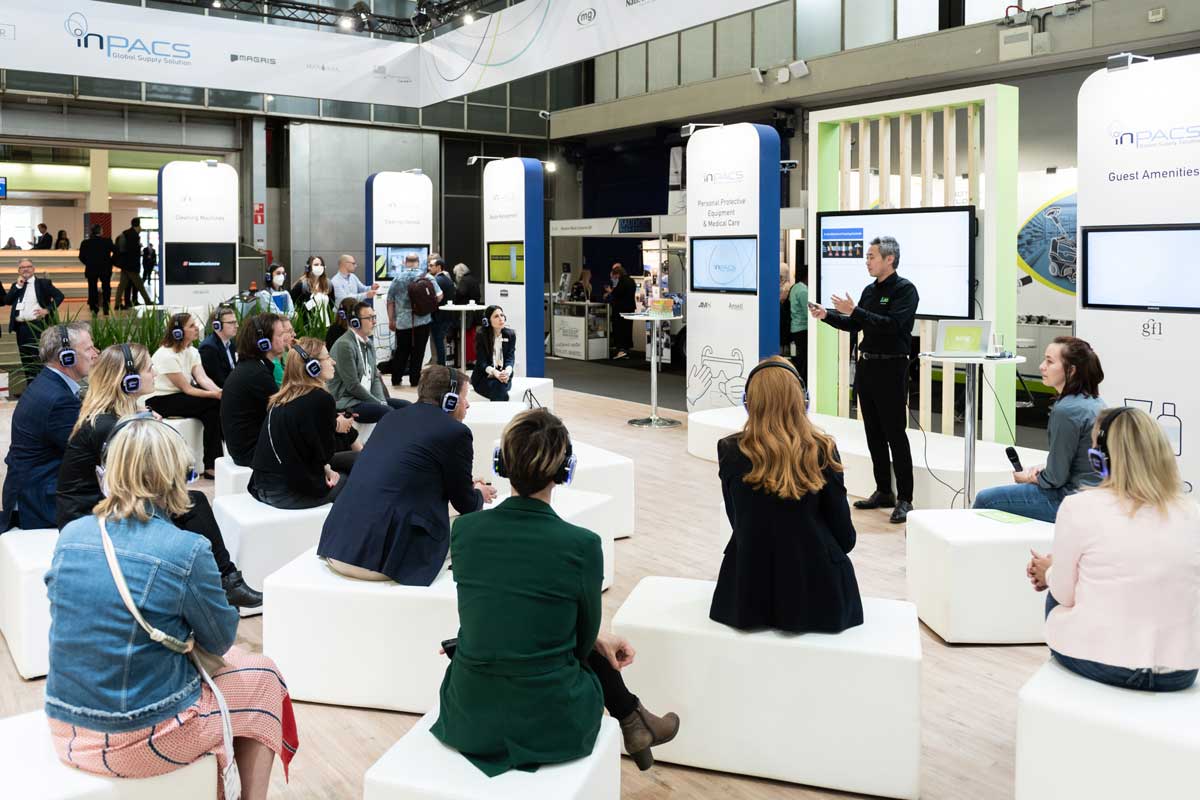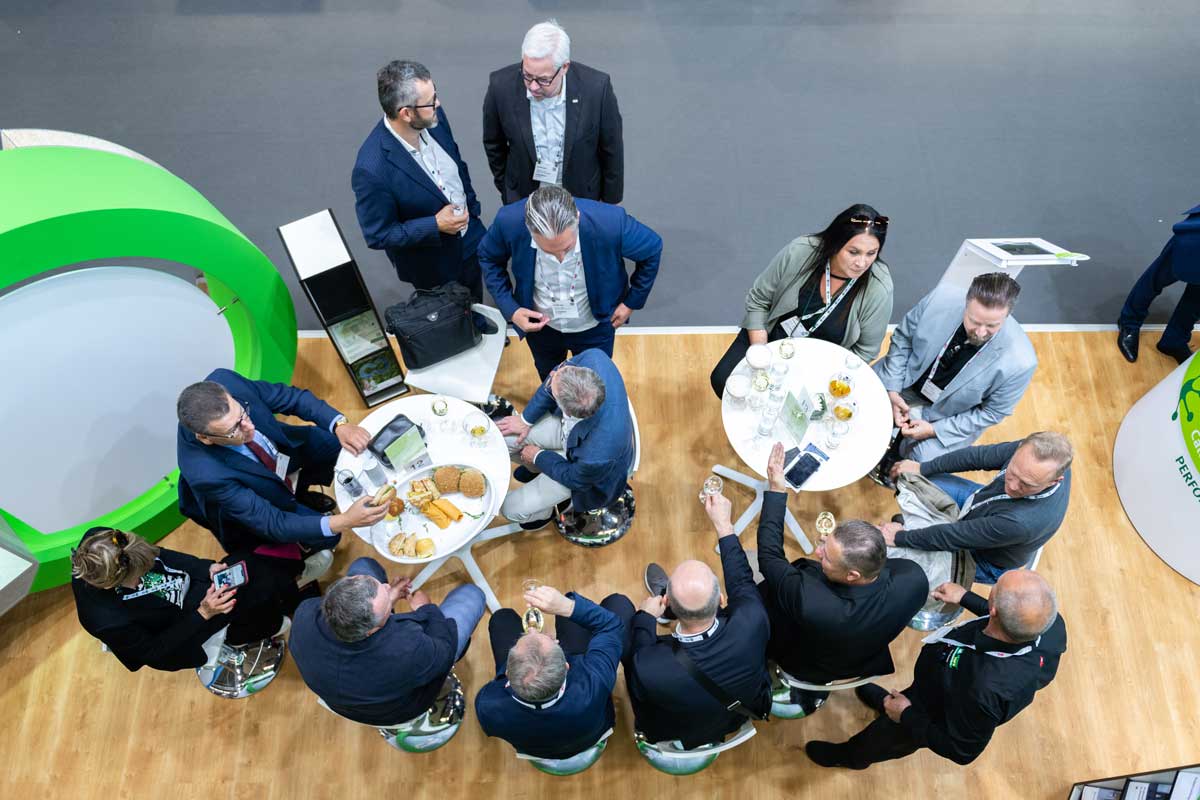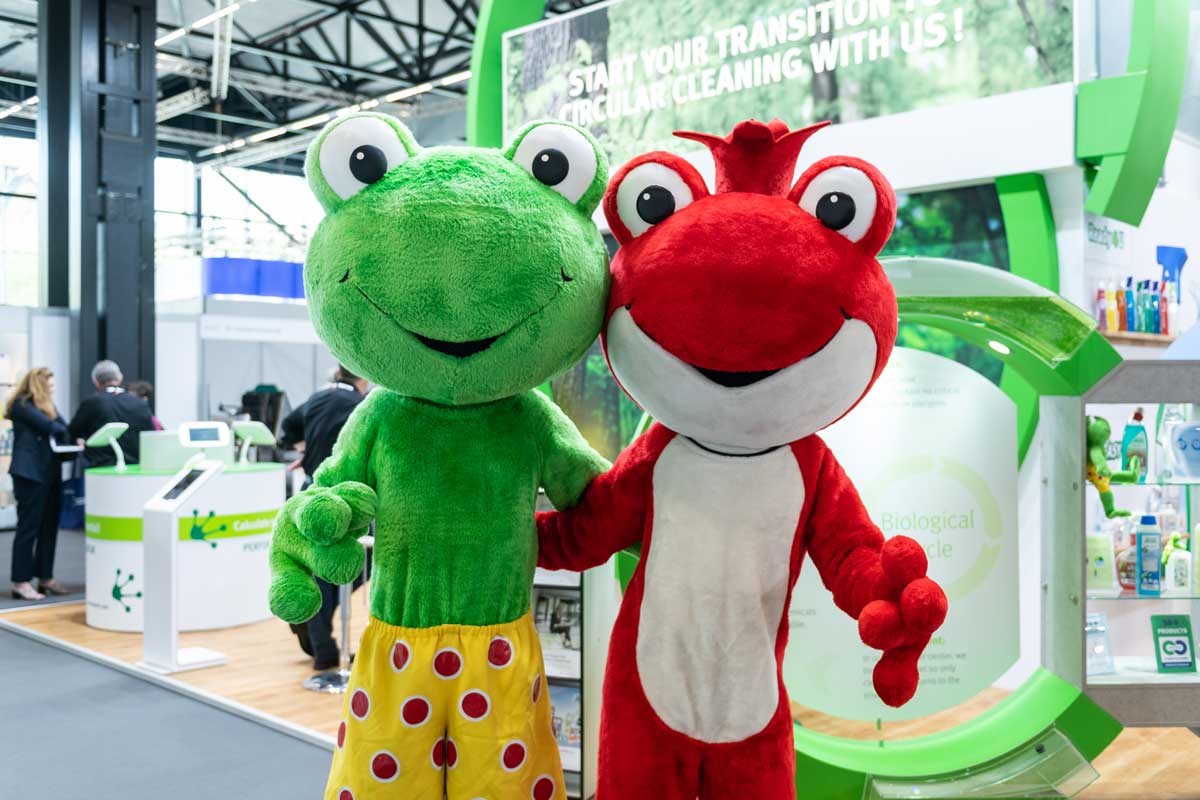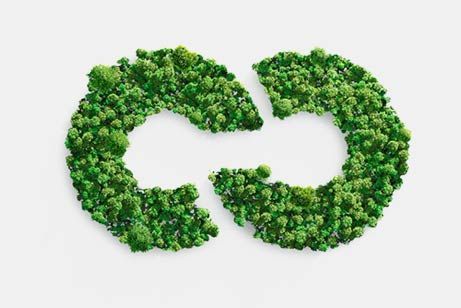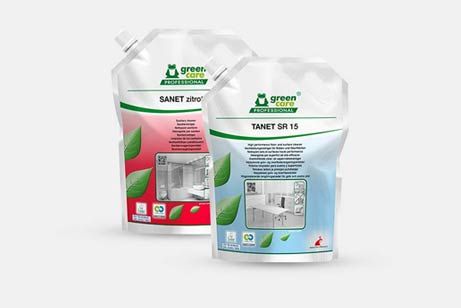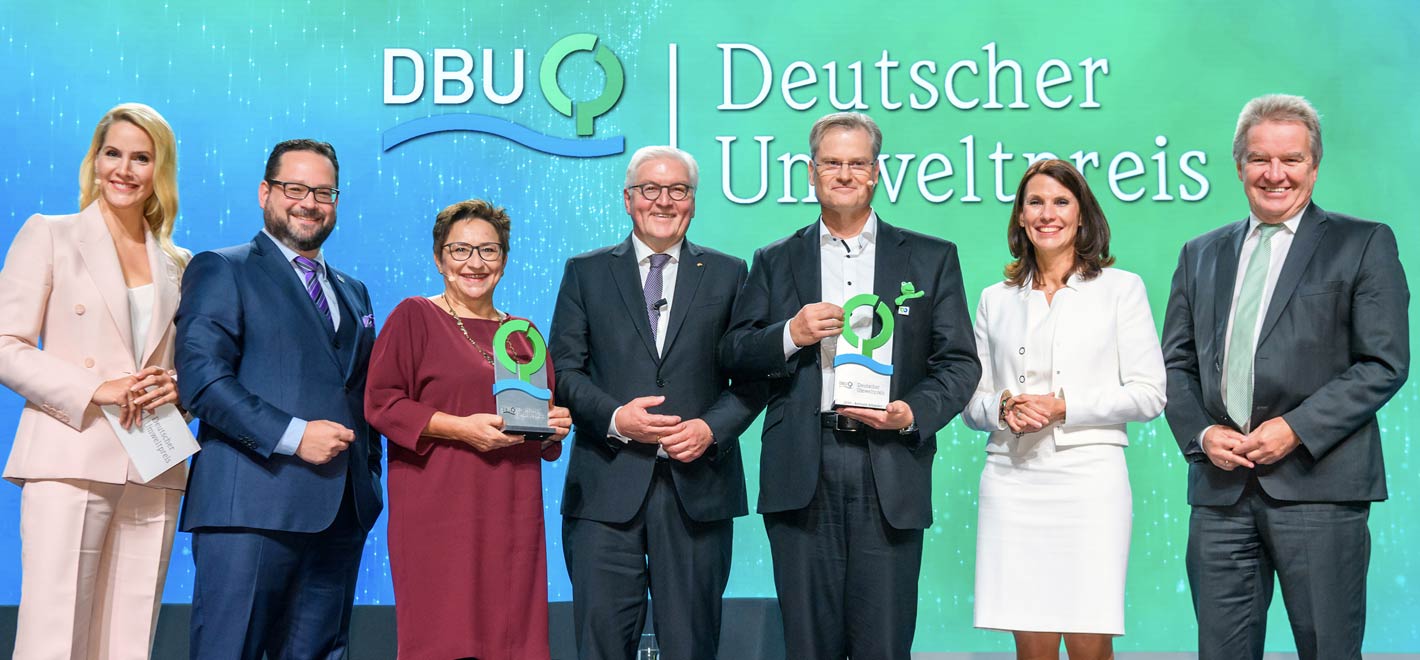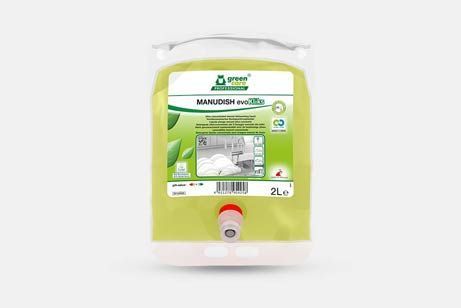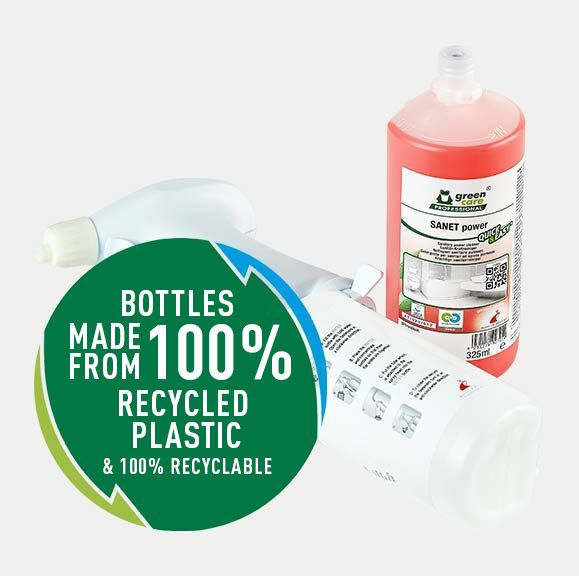Werner & Mertz Professional at Interclean 2022: Crowds rush toward the circular economy
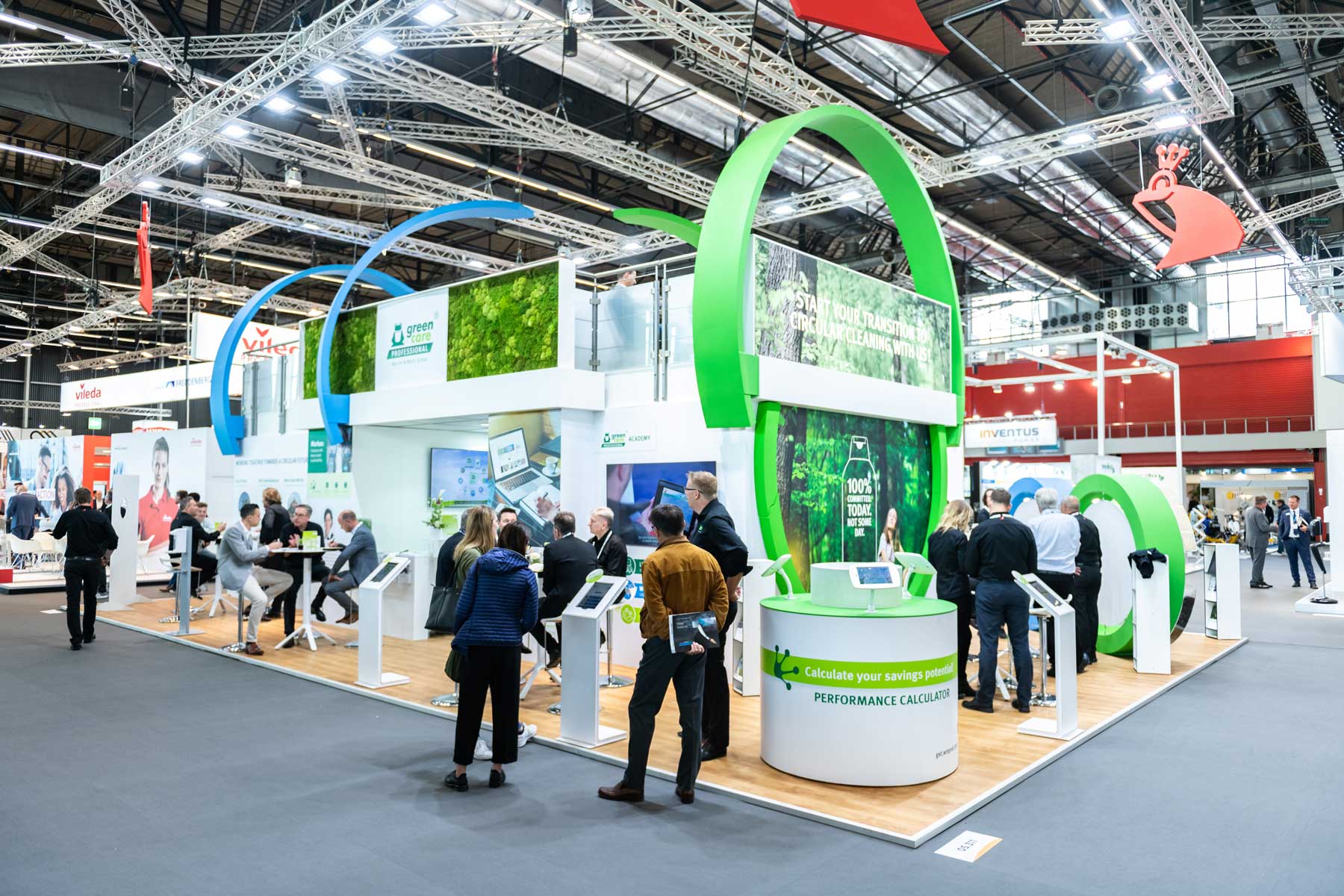
Tana-Chemie GmbH auf der Interclean 2022. Copyright: Tana-Chemie GmbH
Interest in sustainability and the circular economy is growing by leaps and bounds in the professional building cleaning sector. That’s the take-away for Tana-Chemie, the Professional Divison of Werner & Mertz, from this year’s Interclean trade show in Amsterdam. Several hundred companies presented their latest solutions and concepts for professional cleaning from 10 to 13 May in the Netherlands capital.
At the Werner & Mertz Professional booth at Interclean, visitors from all over the world got a good look at the newest products, services and digital tools from the eco pioneer. As usual, the company’s fair presence revolved around the key concept of a sustainable circular economy. “It was fantastic that after a purely digital interlude in 2020, we could finally talk face-to-face with customers,“ says Thomas Ulbricht, CEO of Werner & Mertz Professional. “The atmosphere among the fair visitors was very positive and the interest in our products and topics was enormous.”
Compared to the last live fair in 2018, it was easy to see that sustainability has become the focus of all companies at Interclean, according to Mr. Ulbricht. “As a long-time pioneer of the circular economy and ecological product design, we obviously benefit from this new eco awareness. Which, not least of all, could be seen in the large crowds at our booth.”
The transition to the circular economy
A highlight at the Werner & Mertz Professional booth was a three-dimensional installation that demonstrated the two recycling loops for Green Care Professional brand cleaning products. In one, plant-based raw materials that go into the cleaning products from Green Care are biologically degraded in nature and returned to the biological cycle. The packaging made of high-quality recycled plastic and designed for recycling is kept in a closed technical cycle.
“In this eye-catching model, our customers can see how our products support them in speeding up their transition to the circular economy,“ Mr. Ulbricht says. “It was quickly clear to many visitors that our cleaning solutions also raise customers‘ sustainable use to a whole new level. And that’s made possible without any extra effort from the user. Our Green Care portfolio is a sure way for our customers to become heroes of the circular economy.”
One of the products and digital tools available to users pushing the green transformation in their own companies is the Green Care Academy, an innovative continuing education program for cleaning professionals. On this newly developed eLearning platform, professional cleaning staff have access to practical instructional videos with easily understood information about daily work routines.
Using the free online tool Green Care Performance Calculator, visitors at the booth could find out how many tons of plastic waste, crude oil and greenhouse gases they could avoid by switching to sustainable cleaning products from Green Care Professional. With KLIKS – Pouch, the company introduced a sustainable innovation for its KLIKS dosing system. Now Green Care concentrated cleaners are available in space-saving plastic pouches whose design purposely eliminates all unnecessary packaging material.
Guest speaker at INPACS GmbH
Werner & Mertz Professional went outside its own booth to share the message of the innovative power of a sustainable circular economy. Xiaoming Bai, International Marketing Director at Werner & Mertz Professional, was invited to speak at the INPACS GmbH booth. In his keynote address, Bai led the audience step by step through the transitional process to a successful circular economy and spoke about what the European Green Deal means for the professional cleaning sector.
